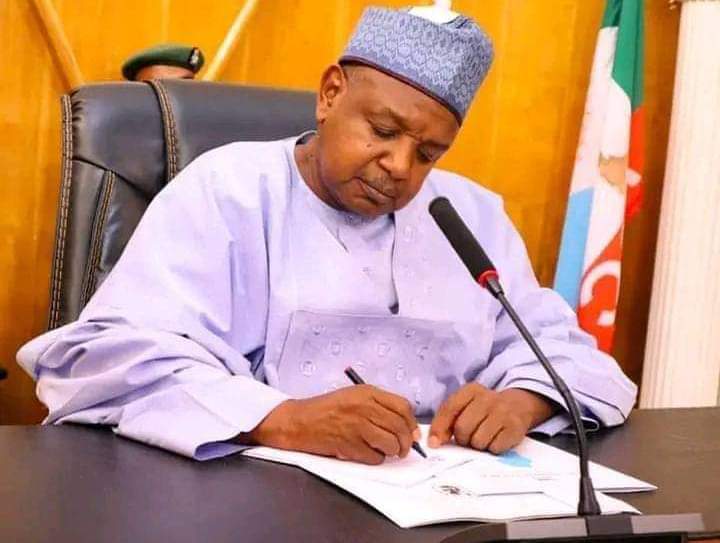Senator Atiku Bagudu, Nigeria’s Minister of Budget and Economic Planning, has called upon the 36 states of the federation, along with the Federal Capital Territory, to accelerate their efforts in accessing the remaining $329.52 million from the $750 million World Bank-supported COVID-19 Action for Recovery and Economic Stimulus (NG-CARES) program.
The NG-CARES programme is a comprehensive initiative designed to deliver immediate relief to vulnerable and impoverished Nigerians, smallholder farmers, and SMEs adversely affected by the COVID-19 pandemic. Its primary objective is to safeguard the livelihoods and food security of impoverished and vulnerable families and facilitate the recovery of local economic activity in all participating states across Nigeria.

The interventions aim to address various shocks such as flooding, natural disasters, and the impact of economic policies that could lead to social unrest and heightened poverty among the disadvantaged populations.
During the inauguration of the federal care steering committee for the programme, Bagudu revealed that a $8 billion World Bank concession loan, with an interest rate of less than two percent, remains untapped by the states and FCT. He expressed concern about the sub-nationals’ sluggish approach to accessing development and economic empowerment funds.
Bagudu emphasised, “The challenge we have is low disbursement. Because from the $15 billion portfolio, about $8 billion is not disbursed. So, if we can accelerate it, that is a source of funding to the federal and state governments.”
He further noted that Nigeria has reached the limit of borrowing from the less than two percent interest loan facility of the World Bank. Therefore, quick disbursement of funds is crucial to accessing low-interest facilities from the global financial institution.
The World Bank representative in the NG-CARES committee, Lire Ersado, highlighted the collaborative nature of the programme, where states own the initiative, and the World Bank provides incentives, making implementation more straightforward. NG-CARES caters to the diverse needs of states based on their specific requirements, covering areas such as social transfer and livelihood, agriculture and support to SMEs, and 11 disbursement-linked indicators.
Ersado stressed the importance of ensuring the sustainability of the programme as it addresses the unique challenges faced by each state while collectively working towards economic recovery and resilience.


